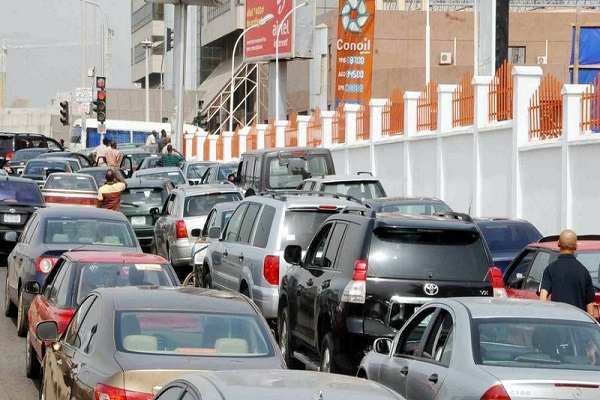The ongoing fuel scarcity in Nigeria has taken a turn for the worse, with long queues lengthening at filling stations across the country, particularly in Abuja and other major cities.
In Abuja, the nation’s capital, the situation has become dire, with many filling stations in areas like Wuye, the Central Business District, Wuse, Kubwa, Gwagwalada, Apo, and Lugbe either completely out of stock or selling petrol at exorbitant prices ranging from N900 to N900 per liter.
Only the NNPC retail stations are maintaining the former price of N617 per litre and even many of the national oil company’s outlets lack the supply of petrol while the ones that have are experiencing very long queues.
The scarcity has led to a significant increase in transport fares, with some routes seeing significant jump in prices. A trip from Jikwoyi to Wuse that used to cost N500 has been increased to N1000, while passengers from Mpape to Berger now pay as much as N600 yo N700 instead of the usual N500.
The situation has caused frustration among motorists, who have been forced to spend hours in queues to get fuel. Some filling stations, like the NNPC and Total stations, were not dispensing fuel at all on Sunday, forcing people to resort to buying from black marketers at the rate of N900 per litre.
Nigeria is experiencing a severe petrol scarcity, particularly in Lagos and the Federal Capital Territory (FCT). Prices have surged to as high as N900 per litre, with some filling stations completely out of stock. The Nigerian National Petroleum Company Limited (NNPCL) cites logistical issues and inclement weather as causes for the disruption, while independent marketers attribute the crisis to high ex-depot prices and outstanding debts owed to them by the government. The situation has led to long queues at petrol stations and a booming black market, where prices can reach N1,200 per litre.
However, the National President of the Petroleum Products Retail Outlets Owners Association of Nigeria (PETROAN), Billy Gillis-Harry, has acknowledged that the supply challenge has not been resolved and that the NNPC Ltd’s own outlets are also affected.





